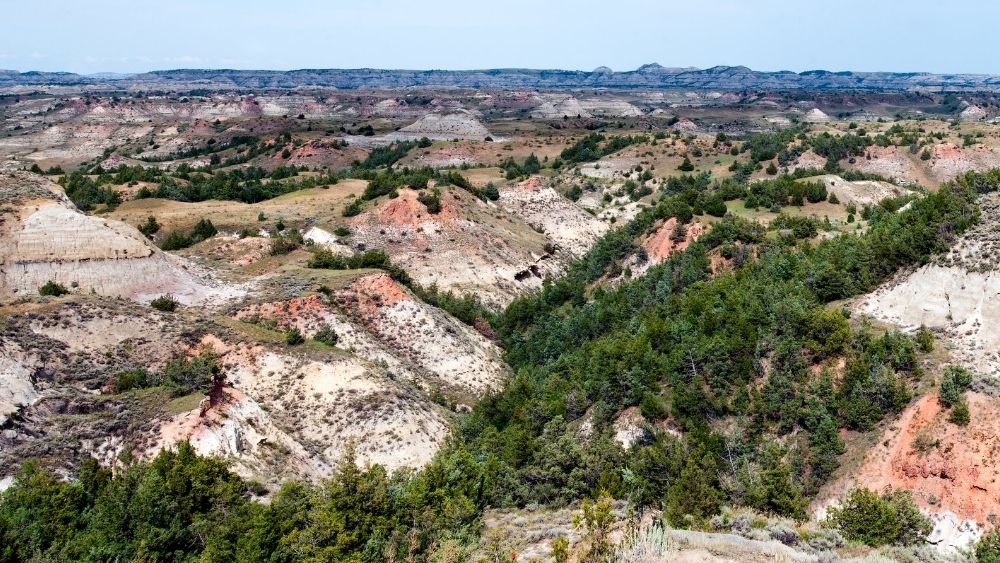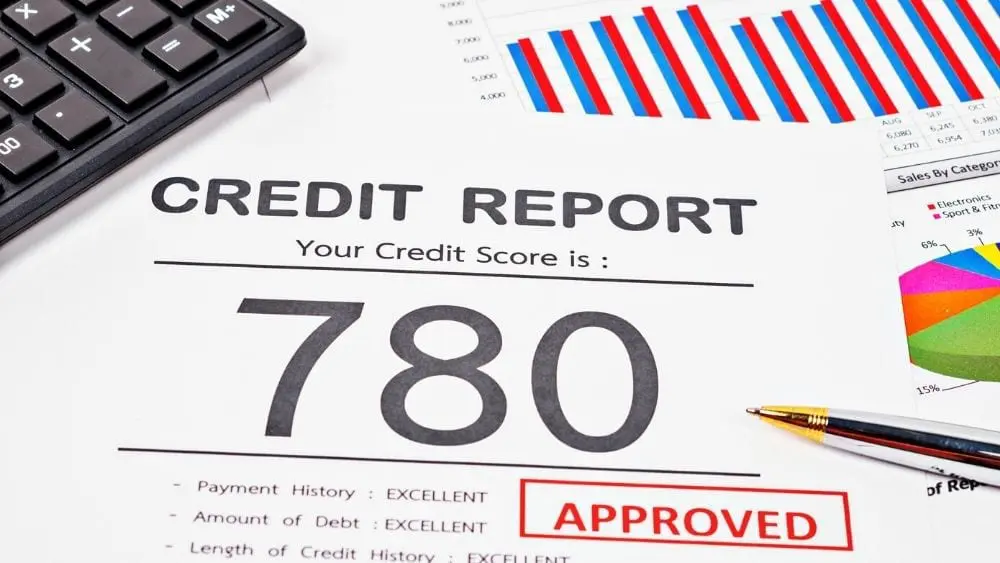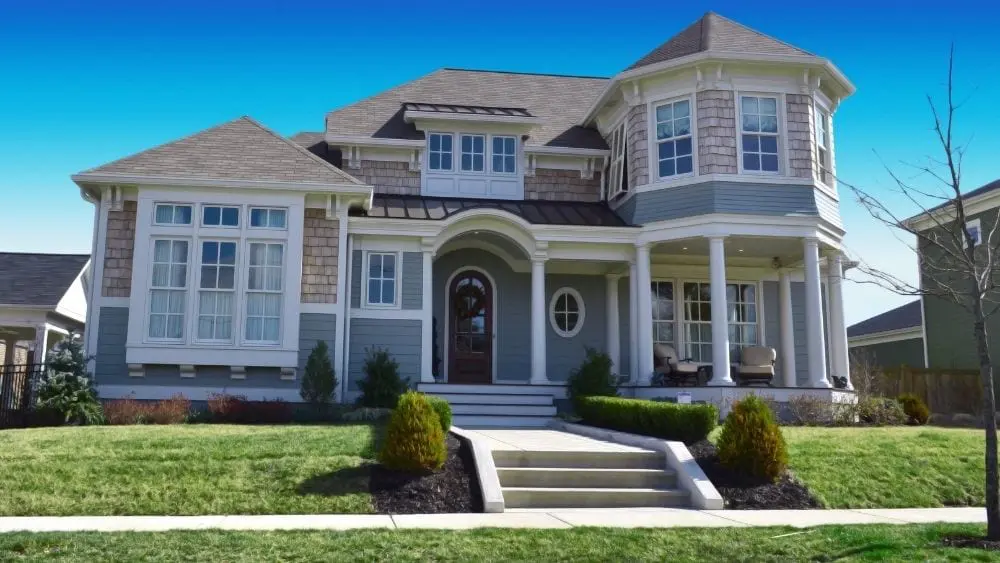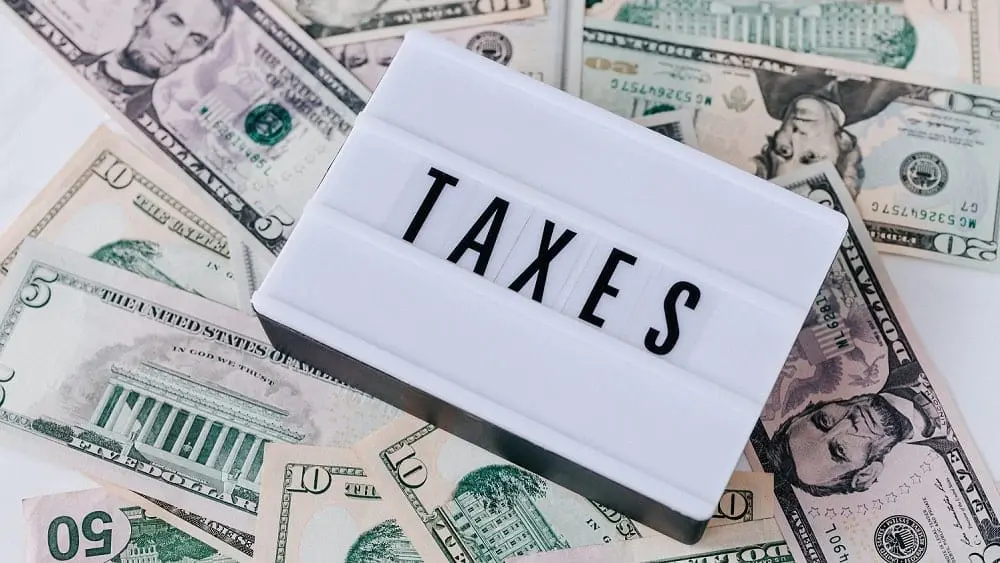
Long stretches of prairie land, agriculture so abundant it earned the nickname “the breadbasket of the nation,” and a melting pot of cultures in busy cities – there are plenty of reasons why homebuyers decide to move to North Dakota.
You’ve saved up for a down payment and secured a competitive home loan, but there’s one more financial hurdle to cross — paying for closing costs.
What are Closing Costs?
Closing costs is an umbrella term, encompassing all the administrative and legal services you’ll need to pay before you receive the keys to your new home. It takes a village to help you buy property – you’ll need to pay your lender for setting up your mortgage, your appraiser and home inspector for scoping out the property, and your home insurance provider, for example.
Various taxes and insurance premiums can be included in the closing costs tab, too. Typically, these fees are grouped together and paid in a single lump sum. All in, closing costs usually amount to two to five percent of the home’s purchase price, which is paid alongside your down payment. Yup, it’s one expensive day for your bank account!
How to Estimate Closing Costs in North Dakota
If you’re buying a new home in North Dakota, NewHomeSource.com has put together the following guide to help you determine how much you should be saving for closing costs, state-specific rules you’ll need to know, and how you can potentially lower these costs.
How Much are Closing Costs in North Dakota?
Closing costs in North Dakota run, on average, $1,894 for an average home loan of $177,081, according to a 2021 report by ClosingCorp, which provides research on the U.S. real estate industry. That price tag makes up 1.07 percent of the home’s price tag.
The Legendary State has some of the nation’s cheapest closing costs, ranking 10th for the least expensive closing costs. Overall, it’s safe to say closing costs are cheaper in the Midwest – Missouri, Indiana, Iowa, and South Dakota are also among the top 10 states with the lowest closing costs. In Missouri, for example, closing costs are a mere $1,290 for a home loan of $177,915. For comparison’s sake, the national average is $6,087.
But homebuyers in North Dakota should plan on spending far more than this estimate. ClosingCorp’s data excludes two major closing costs you’re bound to come across — loan origination fees (if you’re taking out a mortgage) and private mortgage insurance (if you have a down payment of less than 20 percent). Combined, these expenses will add thousands to your closing costs tab.
Home prices in North Dakota have also crept up: In 2021, the average price tag for single-family homes was $245,014; they are appreciating in value by 4.4 percent, according to real estate data.
Keep in mind, closing costs will fluctuate greatly depending on the price of the home, its location, and the complexity of the sale.
What’s Typically Included in North Dakota’s Closing Costs?
When it comes to understanding the breakdown of your closing costs, the expenses start tallying up as soon as you apply for a home loan. With so many moving parts, it’s convenient to group your closing costs into three categories:
- Mortgage-related fees
- Property-related fees
- Annual fees
Here’s a closer look at some common charges you’ll encounter, including state-specific details.
Mortgage-Related Fees
Unless you’re buying your new home with cash, you’ll need to be approved for a mortgage. These are the closing fees you’ll incur from your lender, along with state protocol for hiring an attorney.
Loan Origination Fees
Securing a mortgage doesn’t come for free — your mortgage broker will charge loan origination fees for all the administrative work involved from setting up your home loan application, conducting an underwrite, and preparing pre-approval letters for your house hunting.
Estimate loan origination fees to run about 0.5 percent to 1 percent of the loan amount.
Credit Report Fees

When you apply for any type of credit, your lender must do their due diligence to make sure you’re a responsible borrower. To get a clear snapshot of how you’ve managed debt in the past, they’ll pull your credit report from the various bureaus.
Your lender will charge you for the costs they incur from pulling your credit report. Double this expense if there’s more than one person on the loan application.
Private Mortgage Insurance
If you aren’t providing a 20 percent down payment, your lender will expect you to buy private mortgage insurance, or PMI. This allows borrowers to qualify for a conventional loan even if they put down five to 19.99 percent of their mortgage. While you’re on the hook for this expense, the coverage protects your lender in case you default on your mortgage.
PMI typically ranges from 0.25 percent to as high as 2.25 percent of your outstanding loan balance, depending on the size of your down payment and credit score.
Attorney Fees
North Dakota is one of several states that requires homebuyers to hire a real estate attorney for closing. The attorney must provide an opinion on the property’s title examination. You’ll need their sign-off on the title examination to qualify for a title insurance policy.
Count on your attorney to help with other legal aspects too, from drafting your purchase agreement and contract of sale to certifying deeds. They’re especially helpful if your home purchase is complicated, such as if you’re buying from out of state, or the property is in foreclosure.
Legal fees will vary, depending on the complexity of the sale. Some attorneys bill by the hour while others may charge a retainer fee. The onus is on the buyer to pick up this tab in North Dakota.
Escrow Fees
While you’ll need a lawyer for the legal facets of your closing, you can also enlist the help of a title company or escrow agent to guide you through the checklist of closing items to complete.
Your title company will set up a neutral third-party escrow account for your payments due, including your earnest money deposit, down payment, home insurance, property taxes, other services. These funds won’t be released until the ink is dry on your home purchase and all parties involved have met their conditions on the sale.
It’s customary for buyers to pay escrow fees, too.

Property-Related Fees
Before you hand over your life’s savings to buy your dream home, you’ll need to hit some pivotal checkpoints to make sure the property in question is a sound investment.
Title Search
Homebuyers must pay for a title examination, which is an in-depth look at the property’s title history to verify that the seller has the right to transfer ownership to you. The abstractor conducting your title search will pore over historical records, deeds, and court records to verify the land isn’t tied up in ownership disputes, lawsuits, or unpaid taxes.
This is a make-or-break step every homebuyer must pay for, whether you’re buying a brand-new home or an existing property.
Title Insurance
Once the title search is complete, the results must be reviewed by your attorney. In a nutshell, your lawyer must render a title opinion to certify the title is indeed free for you to take ownership.
After that, you’ll need to cover your bases with title insurance for both you and your lender (called the owner’s policy and the lender’s policy). Title insurance protects both parties in case something goes awry and there are “defects in title” or claims on your property.
Sometimes the buyer and seller split the cost for title insurance but in North Dakota, it’s customary for the buyer to purchase both policies. Bear in mind, if you’re negotiating with the seller, this cost could shift to them for other concessions.
Overall, title insurance is a one-time expense, so the insurance applies as long as you’re the homeowner.
Appraisal
The property you’re buying also needs to clear an appraisal, which is ordered by your lender but paid by you. Your lender will send a third-party appraiser to your new home to make sure it’s priced properly. They do this as a precautionary measure – they need to know they can sell the property and recoup their costs if you can’t keep up with your mortgage and default.
The appraiser will evaluate the home’s size and condition, as well as how it stacks up to homes priced similarly in the community, to determine its fair market value.
Home Inspection
A home inspection provides a different function from an appraisal. Home inspectors zero in on the health and safety of your potential new home. They’ll conduct a thorough walkthrough of the property to confirm everything is in good running order from the foundation to the roof.
Listen to your home inspector’s feedback and take notes: They will point out any existing issues as well as ones that could surface in the coming years, such as needing to replace major appliances or repair an aging roof. This is great intel you can flag to your seller so they can make repairs or adjust the price before finalizing the deal.
Real Estate Transfer Tax

Homebuyers in the Legendary State can breathe a big sigh of relief – there are no real estate transfer taxes in North Dakota! Typically, whenever a home transfers hands, buyers and sellers incur a real estate transfer tax, but North Dakota is one of about a dozen states that doesn’t have this closing cost expense.
This will save you a fair bit of cash – in some states, transfer taxes are as high as $3.75 for every $500 of property value, with additional transfer taxes from local counties.
You may still incur a small recording fee from your local county for documenting the deed transfer in public records.
Annual Fees
Monthly mortgage payments, utility bills, even taking down the holiday lights at the start of a new year—homeownership is all about juggling responsibilities. Your closing costs will include a handful of recurring fees that you’ll need to start paying annually. The costs below are prepaid expenses, which means they can’t be rolled into your home financing.
Homeowner’s Insurance
By closing, your lender will insist that you have a homeowner’s insurance policy paid for and in effect for the upcoming year. It’s crucial to have it in effect by the time you take ownership because it covers any physical damage to your home caused by fire, wind, vandalism, or theft.
It’s worth checking to see if you need additional policies for extreme winter weather or for coverage for valuable jewelry, art, or family heirlooms you’re keeping in the house.
Property Taxes
Property tax is a rite-of-passage for every homeowner. In North Dakota, homeowners pay an average of 0.95 percent of their property’s assessed market value, according to the Tax Foundation, a decades-old tax policy non-profit. The rate will vary with estimates creeping up to 1.05 percent because county taxes may be levied.
Property taxes are due by March, according to the state’s tax department.
How Can I Lower my Closing Costs in North Dakota?
Is the sticker shock setting in? If you’re worried about how you’ll come up with the cash for closing, here are some key money-saving strategies to try out.
Closing Cost Assistance
If you want to put a significant dent in your closing costs, look into North Dakota’s homeownership assistance programs.
Start by researching the string of programs organized by the North Dakota Housing Finance Agency – there are programs designed for first-time homebuyers, single parents, spouses with a partner in the military, or spouses with a partner who is permanently disabled or over 65 years old.
If you’re eligible, these programs help homebuyers secure below-market home loans along with down payment and closing cost assistance.
From Bismarck to Fargo, and Grand Forks to Jameston, there are local programs with closing cost assistance worth investigating.

Get your Finances in Shape
Get your financial ducks in a row to secure a lower interest rate, which will save you thousands over the lifetime of your mortgage.
Check your credit score to see if it needs some work or if it’s in good standing. Then focus on paying down your debts to keep your debt-to-income ratio low, and don’t skip any payments on existing loans.
Save as much as you can for your down payment, too. The closer you get to the 20 percent threshold, the less you’ll have to pay in PMI. And once you hit the 20 percent equity mark, you’re off the hook for PMI.
Seller Concessions
Back and forth negotiations are a part of the homebuying process, so you may be able to reassign some of your closing costs to the seller, especially if you’re in a buyer’s market.
Work with your seller to come to a compromise on who pays for what. If you’re buying a fixer-upper, for example, you can ask the seller to cover portions of your closing costs so you can pay for repairs. If you’re buying a new home and plan on making lots of upgrades, you may be able to work out a deal with your builder to pay some of your closing costs.
Negotiate Fees
You can also negotiate certain fees — this time with your lender. If you’re a long-time, loyal customer with multiple loan products you’re managing responsibly, you could ask your lender to remove some loan origination fees. The most obvious charges you can try to eliminate are often labeled as “junk fees,” such as rate lock fees, loan processing fees, and broker rebates.
No-Closing-Cost Mortgages
Some homebuyers can opt into a “no-closing-cost” mortgage as a strategy to keep this expense at a minimum. With no-closing-cost mortgages, your lender agrees to pay for part or all the closing costs, but you, in turn, pay a higher interest rate.
In the long run, this could cost you more money because of the bump in your interest rate, but for some homeowners, it may be their best choice.
Adding Closing Costs to your Home Financing
Some homebuyers choose to roll their closing costs into their home loan. This means you’re off the hook for paying for these expenses on closing day, but you’ll make up for it via monthly mortgage payments that will be a bit higher. Ultimately, you’re paying interest on the closing costs tacked onto your first mortgage.
Check with your lender to see if this option is available. Keep in mind, not all closing costs can be included because some, such as homeowner’s insurance, must be paid upfront.

Carmen Chai is an award-winning Canadian journalist who has lived and reported from major cities such as Vancouver, Toronto, London and Paris. For NewHomeSource, Carmen covers a variety of topics, including insurance, mortgages, and more.
 The Top 10 Most Affordable Cities in North Carolina
The Top 10 Most Affordable Cities in North Carolina